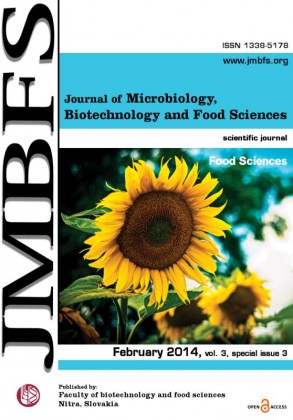LEGUMES UTILISED IN TRADITIONAL FOODS IN IRAQ
Keywords:
traditional foods, legumes, Iraqian regional foodsAbstract
Iraq is famous in the traditional food from legumes, especially chickpea, lentil, and beans are fresh and dry seeds and as well as for peas, beans and the seeds of faba, cowpea and chickpeas boiled with salt eaten in the form of Lablabe, or make soup from fresh cowpea, fresh faba bean, fresh fasoulia, as well as lentil soup (shorbat adas) and different kinds of salad. Turshi, pickled vegetables and fresh pea, fresh fasoulia in the cuisine of many Balkan and Middle East countries. It is a traditional appetizer, meze. Chickpea is eaten on form falafel . The cuisine of Iraq reflects this rich inheritance as well as strong influence from the culinary traditions of neighbouring Persia, Turkey and the Syria region area. Meals begin with appetizers and salads known as Mezza. Some popular dishes include kebab (often marinated with garlic, lemon and spices, then grilled). It can be challenging to help people adjust their diet to meet their nutrient needs and promote weight loss, while at the same time still keeping them satiated. Nutrient rich legumes can be a valuable part of such a diet. They contain soluble fibre and protein and are low glycemic index, all of which may help promote satiety. Legumes are one of the most sustainable sources of protein in the world. Legumes are also significant sources of resistant starch, which is fermented by colonic bacteria to short chain fatty acids.Downloads
Download data is not yet available.
Downloads
Published
2014-02-01
How to Cite
S. Ismael, D., Vollmannová, A., Timoracká, M., & Harangozo, ĽuboÅ¡. (2014). LEGUMES UTILISED IN TRADITIONAL FOODS IN IRAQ. Journal of Microbiology, Biotechnology and Food Sciences, 3(special issue 3 (Food Sciences), 218–220. Retrieved from https://office2.jmbfs.org/index.php/JMBFS/article/view/7580
Issue
Section
Food Sciences
License
Copyright (c) 2014 Dalaram S. Ismael, Alena Vollmannová, Mária Timoracká, ĽuboÅ¡ Harangozo

This work is licensed under a Creative Commons Attribution 4.0 International License.
All papers published in the Journal of Microbiology, Biotechnology and Food Sciences are published under a CC-BY licence (CC-BY 4.0). Published materials can be shared (copy and redistribute the material in any medium or format) and adapted (remix, transform, and build upon the material for any purpose, even commercially) with specifying the author(s).

